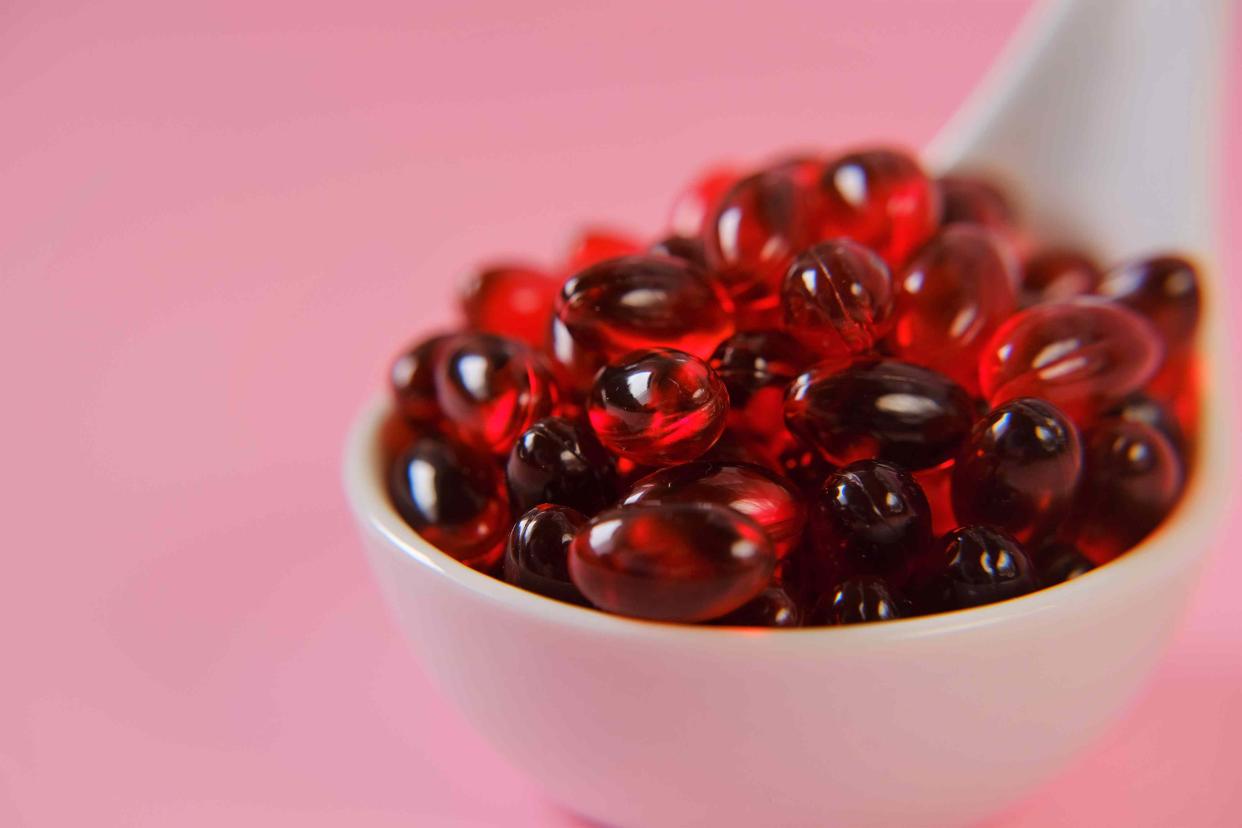Is Krill Oil Better Than Fish Oil?

yul38885 / Getty Images
Fact checked by Nick Blackmer
Key Takeaways
Krill oil is rich in omega-3 fatty acids that the body may absorb better than fish oil.
Krill oil contains an antioxidant that supports eye health and has anti-inflammatory properties.
A meta-analysis found that krill oil has no significant impact on blood pressure or heart disease risk factors.
Krill oil is a fish oil alternative made from tiny shrimp-like crustaceans, a dietary staple for Antarctic wildlife such as whales and birds. This oil is rich in omega-3 fatty acids, which the body may absorb more efficiently than those found in fish oil.
Both krill and fish oil supplements have two types of omega-3 fatty acids: eicosapentaenoic acid (EPA) and docosahexaenoic acid (DHA). They’ve been shown to support heart health and reduce inflammation.
However, krill oil may not be a magic bullet for heart health. A 2023 meta-analysis found that krill oil made no impact on blood pressure or heart disease risk factors.
“We need more studies because even omega-3s have fallen flat on some of the things we thought they could do. In some of the studies, just eating fish has shown to have better outcomes than taking the fish oil,” Judy Simon, MS, RDN, CD, a clinical dietitian nutritionist at the UW Medical Center who was not involved in the study, told Verywell.
Related: Comparing Krill Oil vs. Fish Oil Benefits
What Does Krill Oil Really Do?
Besides enhanced omega-3 absorption, krill oil is touted for its antioxidant content. Unlike fish oil, krill oil gets its red color from the antioxidant astaxanthin, which supports eye health and has anti-inflammatory properties. The antioxidant is also found in salmon, shrimp, and algae.
Simon said one study in 2017 suggested that krill oil can reduce dry eye symptoms better than fish oil because of astaxanthin.
An older study from 2003 found that krill oil might help people manage premenstrual syndrome (PMS) symptoms better than fish oil, potentially due to its anti-inflammatory effect.
However, you can get similar relief from PMS symptoms or menstrual cramps by adjusting your overall diet, according to Sue-Ellen Anderson-Haynes, MS, RDN, CDCES, a registered dietitian based in Boston.
Are Krill Oil Supplements Worth the Price?
Antarctic krill oil is typically three to four times more expensive than fish oil because of harvesting costs. Krill fishing requires massive vessels—described as “floating krill oil factories”—that can traverse the Drake Passage, one of the most dangerous ocean crossings in the world.
“The price is much higher, and I don’t think they’ve proven a cost-benefit for it,” Simon said.
Omega-3s in krill oil and fish oil may increase the risk of bleeding, especially if taken alongside a blood-thinning medication. Simon added that krill oil can sometimes cause gastrointestinal symptoms, such as bloating, nausea, diarrhea, gas, and heartburn. While krill oil is well-tolerated and safe for many people, it may not suit people who are allergic to shellfish.
Most nutrition experts and public health organizations recommend eating a varied diet that contains omega-3-rich foods instead of relying on supplements.
Krill hasn’t gained popularity in American restaurants yet, but it’s used in making fermented shrimp paste in Asia, and you can buy canned krill online. Anderson-Haynes said other types of seafood and fish, seaweed, walnuts, flax seeds, or chia seeds are good dietary sources of omega-3s.
“You’re getting other nutrients and antioxidant activities from the foods,” Anderson-Haynes added. “A food-first approach is best.”
What This Means For You
Krill oil contains omega-3s and the antioxidant astaxanthin. Despite its potential benefits for heart health and conditions like PMS, there’s not enough evidence to prove its impact on blood pressure or heart disease factors.
Read the original article on Verywell Health.

